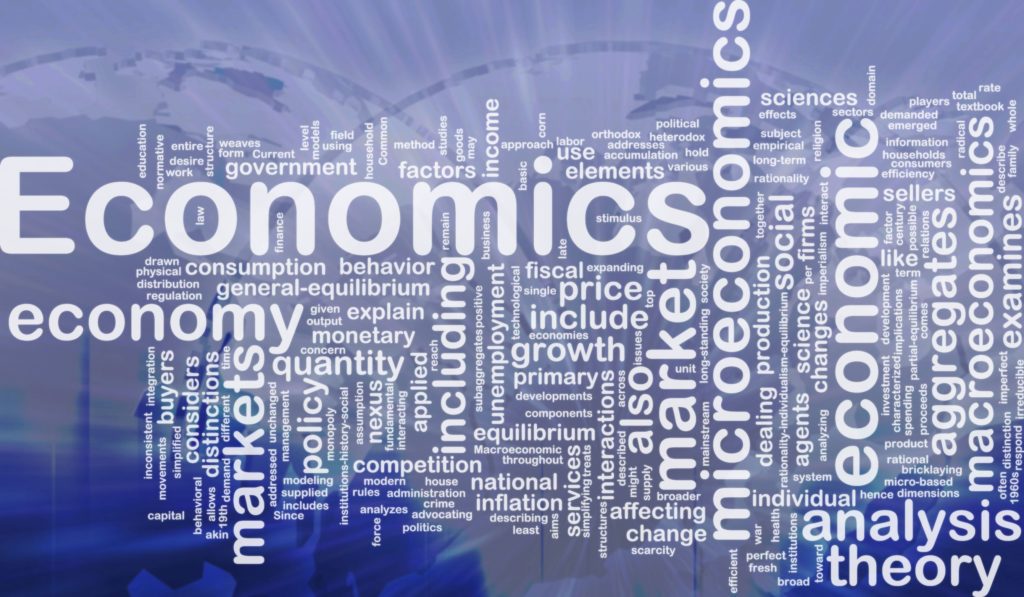I have a confession to make. I am not a numbers guy. As an english major, math was not always my friend (sometimes it still picks on me). And I do remember dozing off a time or two in my sophomore macroeconomics course. Why do I mention this? Because I think many of you may feel the same way I did. Economics can’t be “spiritual” right?
I did not become a follower of Jesus until my junior year of high school (I share some of my story here). But it wasn’t until my later college years that I began to see Christianity more as a worldview that speaks to all of reality than just something I do on sunday morning.
As one of my heroes Chuck Colson once put it, “Christianity is not just about a personal relationship with Jesus Christ, it is a whole way of seeing life.”
When it comes to money and helping the poor, it is all to easy to keep God and economics separate. But as I was reminded again the other night while Dr. Jay Richards was on our Impact 360 Institute campus speaking on “How to End Poverty in Ten Tough Steps”, that is a big mistake.
God is the God of all reality. And if God is the author of two books–the book of Nature and the book of Scripture–then these two books ultimately won’t contradict one another. Knowledge is available to us by studying the world and the word (cf. Romans 1:19–20; 2 Timothy 2:15). This means that when we discover knowledge about the way that gravity works, what it was like to be a first century Jewish Christian, or how people, money, and markets relate to each other, then we need to leverage that to live well and love our neighbor.
As I sat and listened to Jay Richards talk about how to really do something about poverty, here were 3 big takeaways:
It’s great news that we no longer have to make the case that we need to do something about the poor–that is a given in this new generation. The Bible is clear on that point. God cares for the poor and so should we. Hopefully we have seen the last of empty slogans like “God helps those who help themselves.” Really? This sentiment is totally at odds with the Gospel. In the same breath however, I am not saying that responsibility and hard work are not critical–they are–but there is far more to ending poverty than working harder.
Sometimes our helping hurts. Richards makes this point by exposing “The Piety Myth” in his excellent book Money, Greed, and God. The essence of this myth focuses on our good intentions rather than on the unintended consequences of our actions. What makes this myth so easy to fall into is that as Christians we genuinely want to do good for the poor. And giving money makes us feel good. Unfortunately, it does not always do good. We have to be discerning and wise to leverage what will truly help people and not just help us feel better.
Another confession–I tend to be an idealist.
We all long for heaven someday.A time and place when everything is as it should be.
However no economic system–read that again–will usher in the Kingdom of God and bring everlasting peace on earth. Until Christ comes we pursue the best solution among limited systems to accomplish as much human flourishing as we can. When it comes to economics, no system has been as successful at creating wealth and lifting people and nations out of poverty as Free-Market principles / Capitalism. Is it perfect? No. Is it the best we have discovered so far? Yes. Richards calls this “The Nirvana Myth.” This myth occurs when you compare a particular economic system (e.g., Capitalism) with perfection rather than competitors. Sure there are vices in capitalism, but there are plenty of virtues too. And these virtues are actually helping millions of people around the globe escape poverty.
Three Big Ideas
1. CHRISTIANS (AND THE LARGER SOCIETY) WANT TO DO SOMETHING ABOUT POVERTY.
2. GOOD INTENTIONS DON’T ALWAYS LEAD TO GOOD OUTCOMES FOR THE POOR.
3. OUR IDEALISM NEEDS TO BE TEMPERED BY HAVING APPROPRIATE EXPECTATIONS OF WHAT IS POSSIBLE IN A BROKEN WORLD.
There are several more points that I would like to make, but I will let you just watch the video and read the book. The bottom line for us as Christians is we need to think as well as feel when we engage poverty. There are at least 10 necessary ingredients when it comes to ending poverty and we ought to do our part to help promote that fact fully recognizing this is a broken world, we are not perfect, and we all can get better at this.
Our next (FREE!) Live-Streaming event is on March 18th when Dr. Del Tackett will address – “Can a Society Flourish Apart from God’s Design?” Be sure to sign up for email updates and we will send you that information as it comes available. If you live near Atlanta, then come on down to the live event.
